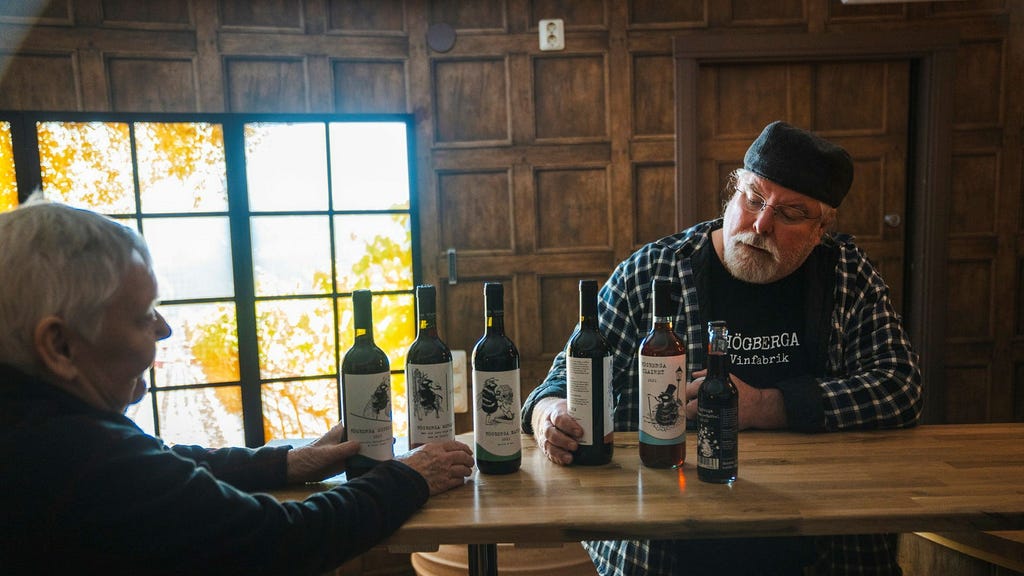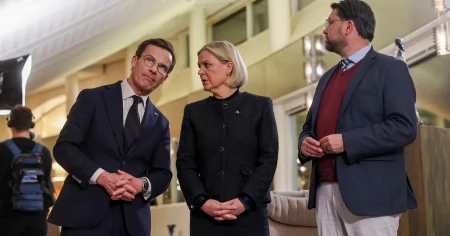Johan Zälle, a winemaker in the Stockholm area, has been producing wine since 2010 using grapes sourced from Tuscany, Italy. Despite initial skepticism about the feasibility of crafting wine from grapes transported thousands of kilometers, Zälle and his partners forged ahead, establishing an urban winery that offers tastings and aims to sell bottles directly to visitors. However, a significant obstacle has emerged in the form of proposed legislation regarding on-site alcohol sales. While the Swedish government has put forward a bill to permit such sales, a key restriction would prevent Zälle’s winery from participating: the requirement that wine sold on-site be made from grapes grown on the same property. This stipulation does not apply to producers of spirits or beer, a disparity that Zälle finds perplexing and unfair.
Zälle argues that the small scale and artisanal nature of his operation, along with the limited number of urban wineries in Sweden, justifies an exemption from this geographical restriction. He contends that the overall impact on alcohol sales would be minimal, especially compared to the readily available and often abused boxed wines sold through Systembolaget, Sweden’s state-run alcohol monopoly. Zälle highlights the potential contradiction in promoting convenient access to large quantities of alcohol through boxed wine sales while simultaneously restricting small-scale, on-site sales that offer a more controlled and curated experience. He believes the focus should be on addressing problematic drinking habits associated with easily accessible bulk alcohol rather than hindering small businesses.
The government’s rationale for linking wine sales to the location of grape cultivation centers on the idea that the vineyard experience is integral to the appeal of wine tourism. They argue that this connection isn’t relevant for spirit and beer producers, as they lack the same capacity for on-site raw material cultivation. Furthermore, the government claims that tracing the origin of grapes is easier than tracking grain, further justifying the differing regulations. The stated aim of the proposed legislation is to bolster Swedish tourism and promote local food and drink culture, a goal Zälle supports in principle but finds undermined by the restrictive clause affecting winemakers like himself. The government frames this as a ”freedom reform,” aligning Sweden with other European countries where on-site sales are common.
The debate surrounding on-site alcohol sales in Sweden is intertwined with the country’s unique alcohol monopoly. This system, shared only with Finland within the EU, grants Systembolaget exclusive rights to retail sales of alcohol above a certain percentage. Allowing on-site sales has been a subject of repeated investigations, with the central concern being the potential threat to this monopoly. The Swedish government has submitted its proposed legislation to the European Commission for review, seeking confirmation that it complies with EU internal market regulations, which promote the free movement of goods, services, capital, and people. However, the proposal has encountered opposition from temperance organizations, Spanish wine producers, and notably, Portugal, whose objections carry significant weight.
Portugal’s critique centers on the argument that the Swedish proposal effectively creates an additional sales channel outside of Systembolaget’s control, thereby undermining the monopoly. The European Commission’s decision on the matter is pending, with a deadline set for January 8th. This decision holds significant implications for Zälle and other urban winemakers who rely on imported grapes. While Zälle has planted his own vines near his winery, the challenging Swedish climate limits their productivity, reinforcing his reliance on importing grapes from more suitable regions.
This legal battle underscores the complexities of balancing local interests with broader EU regulations. For Johan Zälle, the outcome will determine the future viability of his business model, highlighting the precarious position of urban wineries in Sweden. The core issue revolves around whether the government’s focus on supporting local agriculture through restrictive regulations unfairly disadvantages small businesses like Zälle’s while potentially overlooking broader concerns about alcohol consumption patterns. The European Commission’s decision will not only impact Zälle’s operation but also shape the future of on-site alcohol sales in Sweden, potentially setting a precedent for other small-scale producers. The January deadline looms large, with the fate of Zälle’s winery and the broader implications for Sweden’s alcohol market hanging in the balance.














